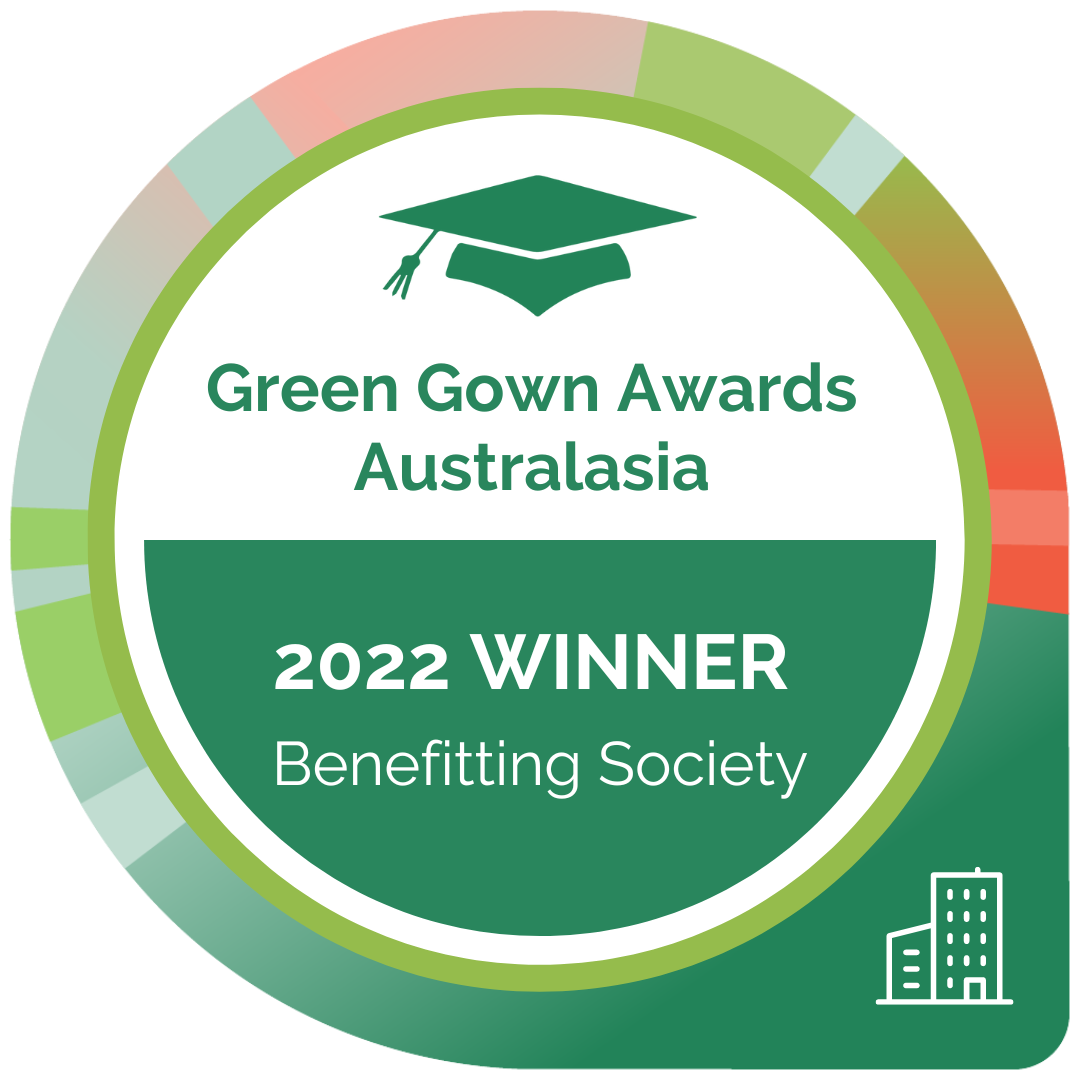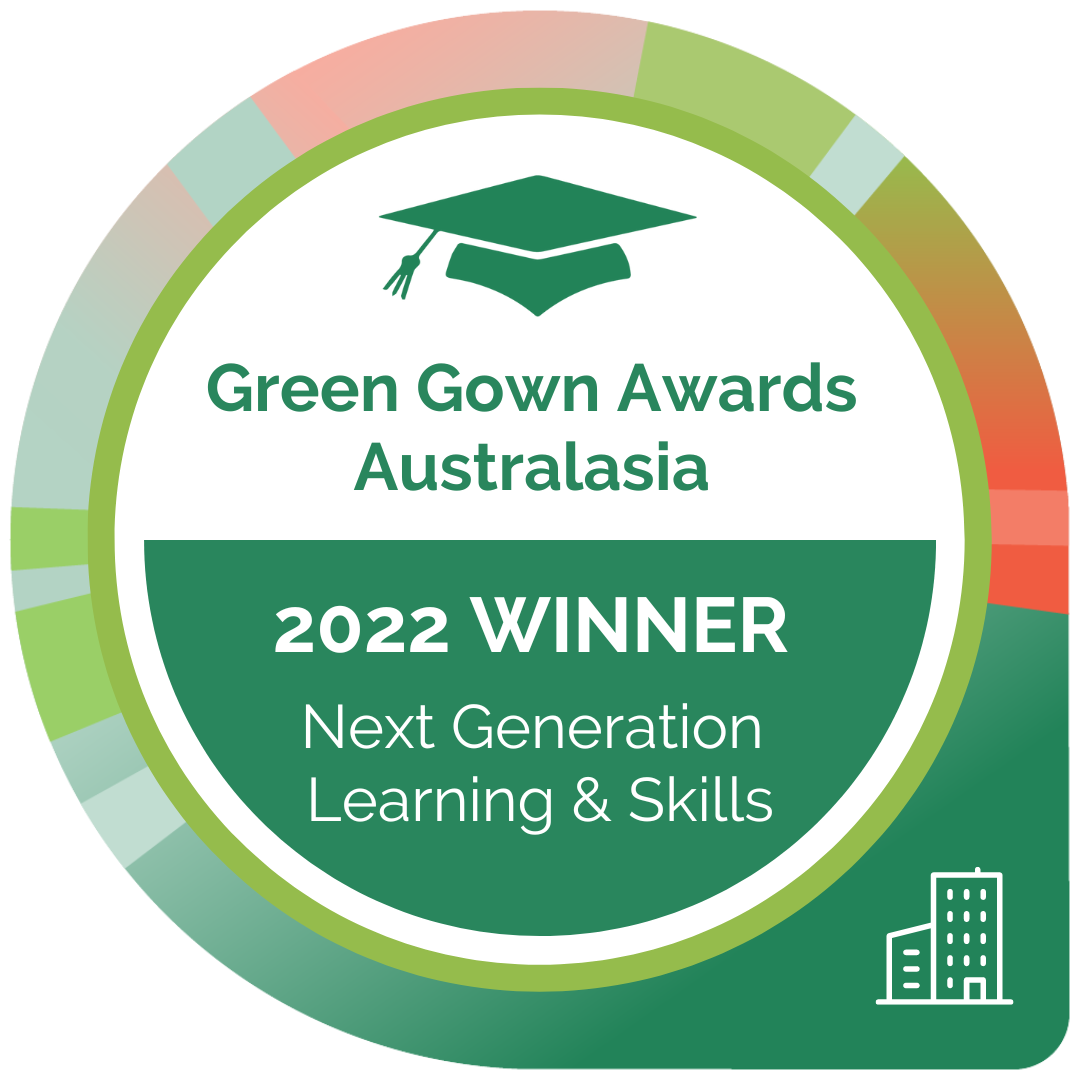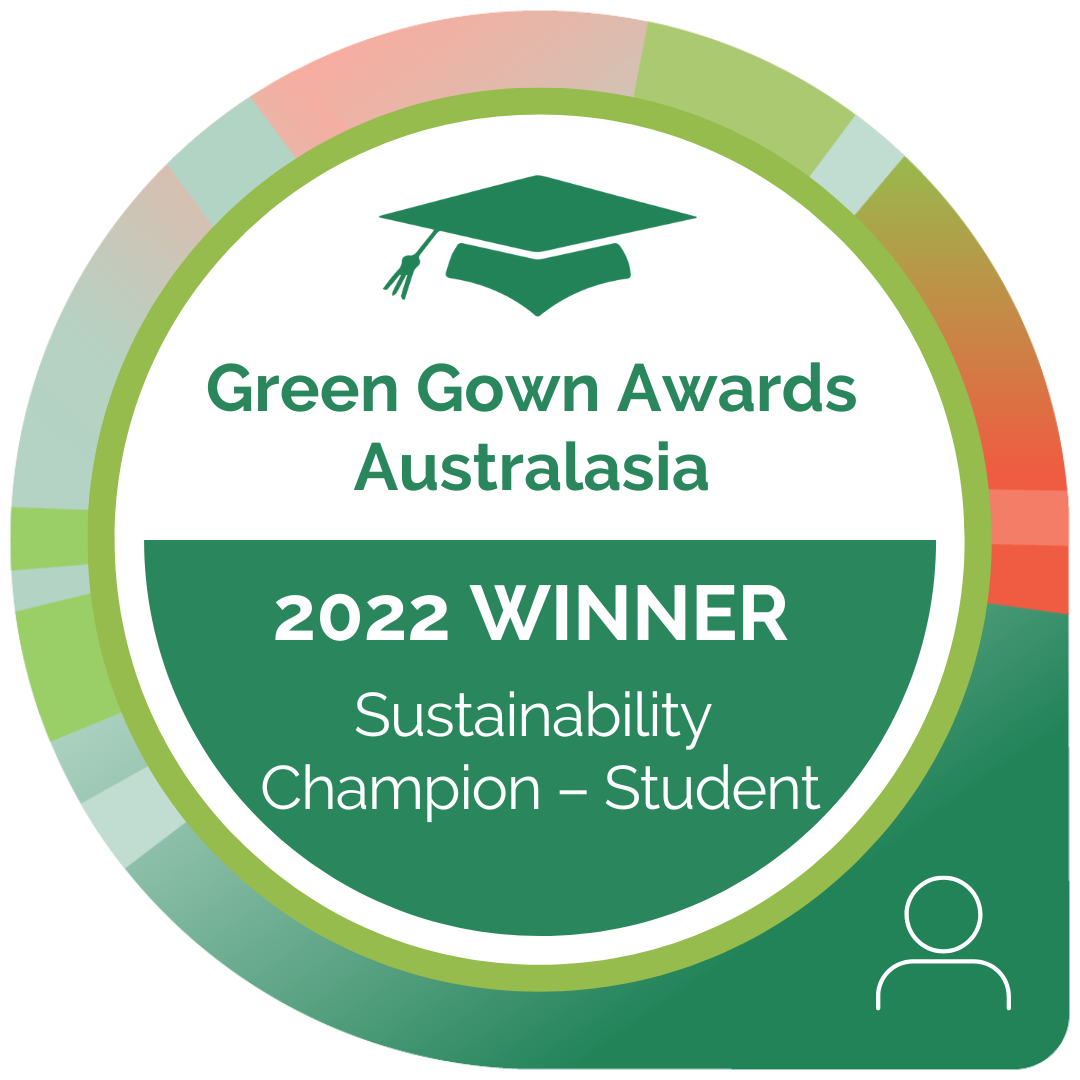The University of Tasmania has been on a sustainability journey for many years. This is largely a self-directed journey, not a destination. But to get anywhere at all we’ve needed to move as a community, an organisation, a collection of individuals, with a shared focus on the many dimensions of sustainability: environmental, socio-cultural, and financial.
Sustainability without regeneration is no longer enough in a world beset by human-caused climate change, biodiversity loss, growing inequalities, wellbeing concerns and myriad other issues that will impact generations to come. As a society we understand the challenges we face, what can and should be done. We need to collectively take up the challenges. Universities, including the University of Tasmania, can take a lead with research and shared knowledge to enable better decision making. Intellectual leadership alone is not enough. We must be an exemplar in applying sustainability and regeneration principles to our own activities.
I, too, have been on a journey. It brought me to lutruwita/Tasmania in 1996 from Antarctica, where I supported science for many years. My connection to place was immediate and deep, and when off island I still feel the ‘Tassie tug’.
Using my lifelong passion for what we now call sustainability, backed up with master's degrees in Environmental Science and Public Administration, I initially focused on recycling, solar power, solar hot water, and storm water collection.
After a number of related roles I became, in 2010, the University’s first ongoing sustainability officer, a position championed by a group of forward-looking academics and professional staff.
Our first focus was on environmental management that included deploying recycling bins and improving sustainable transport options. To ensure students were involved in the journey, the Sustainability Integration Program for Students (SIPS) was established to leverage student and staff-led applied research and engagement using the campus as a living laboratory. SIPS has regularly proved its quality and impact, including winning a $25,000 award in 2015 from the Commonwealth government to expand its reach and winning a 2022 International Green Gown Award.
The next step required evolving the understanding of sustainability to include socio-cultural and financial concerns as well as environmental. Support for this broader understanding of sustainability is evidenced in our biennial sustainability surveys of staff and students from 2016 and through the Education for Sustainability Community of Practice of academic and professional staff.
Over the years, the number of voices within and external to the University calling for and leading our sustainability transformation have increased across all areas and levels.
For example, students led the effort to encourage the University to divest from fossil fuels.
The University response to divestment involved a multi-step process over five years that delivered carbon neutral certification and continuing improvements to the investment approach, orchestrating an orderly transition to achieving full divestment in 2021. The University made an innovative addition of a positive screening for investments that help deliver on the United Nations Sustainable Development Goals (SDGs).
As one of only two Australian universities to have achieved carbon neutral certification through the Australian Government's Climate Active Program, the University has reported on all relevant emissions since 2016, including from such sources as staff commuting, air travel, and waste management.
Building on this, the University formally declared a climate emergency and joined the Race to Zero movement in 2021. Our Emissions Reduction Strategic Plan 2022-2030 includes a minimum 50% reduction target on our gross emissions by 2030 and covers 42 specific initiatives in energy, transport, waste, procurement, and other operational areas. This plan also recognises efforts over many years, such as having the first electric cars in a Tasmanian fleet in 2014, installing electric bike charging stations and bike hubs since 2012, instituting a Re-use Program in 2017 that has saved over $650,000 to date, expanding the waste streams not going to landfill, and supporting the Tasmanian University Student Association to become 100% on-site renewably powered as a first in Australasia.
The next step in 2019 increased our commitment to sustainability through broader and deeper institution-wide action. Our collective sustainability commitment, based on the SDGs, is embedded in our University Strategic Plan and supported by the Strategic Framework for Sustainability and principles-based sustainability and related policies.
Recognising the importance of sustainability, the role of Chief Sustainability Officer was established in 2022: a first for Australasian higher education. I am the proud inaugural CSO.
We employ a variety of tools to assess, demonstrate value, and guide our sustainability efforts, including the Sustainability Tracking, Assessment and Rating System (STARS), Times Higher Education Impact ranking, Green Gown Awards, and internal biennial surveys of staff and students.
STARS, used by over 1,000 universities worldwide, was developed by and for the higher education sector to define initiatives across a broad range of metrics, ensure transparency, and clarify action.
In 2020, the University was the first in Australasia to attain a STARS rating and in 2022, the first to achieve a Gold rating through initiatives covering curriculum, research, student/staff and community engagement, completing divestment, emissions reduction plans, and procurement approaches that address issues of modern slavery and local suppliers.
The University aims to join the 12 global universities that have achieved the highest level of Platinum by 2025.
In addition to impressive rating and ranking outcomes, accolades from the global higher education sector through the Green Gown Awards over many years acknowledge our sustainability efforts and spur greater action.
Most recently these awards included the 2021 Australasian Sustainability Institution of the Year and the 2022 awards for the Curious Climate program (Benefitting Society) and for our Certificate and Diploma in Sustainable Living (Next Generation Learning and Skills)
Our next step to both improve our sustainability performance and contribute to Tasmania and beyond includes embracing many diverse perspectives of what constitutes sustainability from our First Peoples, to academics studying distinct aspects of sustainability, and to our staff who are working to implement sustainability solutions.
Our students, both current and future, make it abundantly clear that they are seeking to attend education institutions that align with their values.
This alone gives me hope that the future will predominantly be driven by people making decisions for themselves, their communities, businesses, and organisations; and that these decisions will be based on an understanding of the collective challenges we face, through knowledge acquired at institutions such as the University of Tasmania.
Corey Peterson is the Chief Sustainability Officer and Chair of the University Sustainability Committee.
Main image: West Park, Cradle Coast Campus
This story features in the 2023 edition of It's in our nature - a collection of stories that celebrate and highlight the unique work being undertaken by our institution, and the people within it, to deliver a more fair, equitable and sustainable society.
Explore sustainability at the University of Tasmania and how you can get involved.



As we aim to be a global, sustainable and responsible leading institution, our efforts align with the United Nations Sustainable Development Goals.


